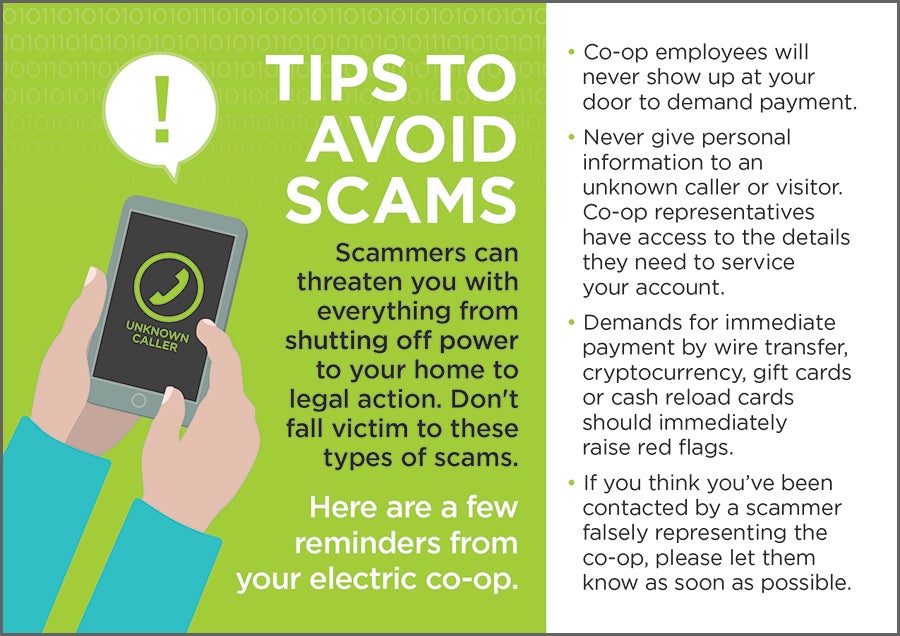Outsmart Utility Scammers

With all of the confusion and uncertainty in our world today, scammers are taking advantage of these circumstances to target consumers by phone, email and text. These con artists claim to be from your local utility and the caller ID on your phone or their email address may even look legitimate.
Members in good standing with their utilities are often caught off-guard by the aggressive tone of these impersonators. They will usually speak with a sense of urgency, ensuring customers do not have time to ask questions or verify their claims. See the sidebar for the most common types of utility scams.
The best defense against a utility scammer is an educated member; follow these tips from Utilities United Against Scams to protect yourself from a potential scam.
- Protect personal information: Never provide or confirm personal information (Social Security number, date of birth) or financial information (banking account information, debit or credit card information) to anyone initiating contact with you and claiming to be from your local electric co-op. Never give out information or provide any payment type to any callers or unexpected individual(s) appearing at your door claiming to represent your co-op. Your local co-op will already have your relevant personal and account information.
- Take your time: Do not be rushed. If you receive a call, text, email or visitor saying you have to pay your bill immediately to avoid disconnection, tell them you would like to verify that they are a legitimate co-op representative by calling a verified number for the local co-op office. Beware if a representative exhibits impatience, annoyance, or anger when you question their authority. While a scammer will discourage you from hanging up and calling the number on your utility bill, a real co-op representative will encourage you to do so for your own peace of mind.
- Always ask questions: Ask the person contacting you to provide you with your account number, your last payment amount, date of payment, and their employee identification number. If he/she is a legitimate utility representative, this information will be readily accessible. If not, hang up or shut the door, and call your utility directly to report the suspicious activity.
- Contact your utility directly: If you receive a suspicious call or visit, please contact the local police and your electric co-op immediately. Share details that the scammer told you which might aid in a possible criminal investigation.
For more tips, download a free copy of the Consumer’s Guide to Imposter Utility Scams. Remember, contact your local electric co-op directly if you receive a suspicious call, text, email or visit from someone claiming to represent the utility.